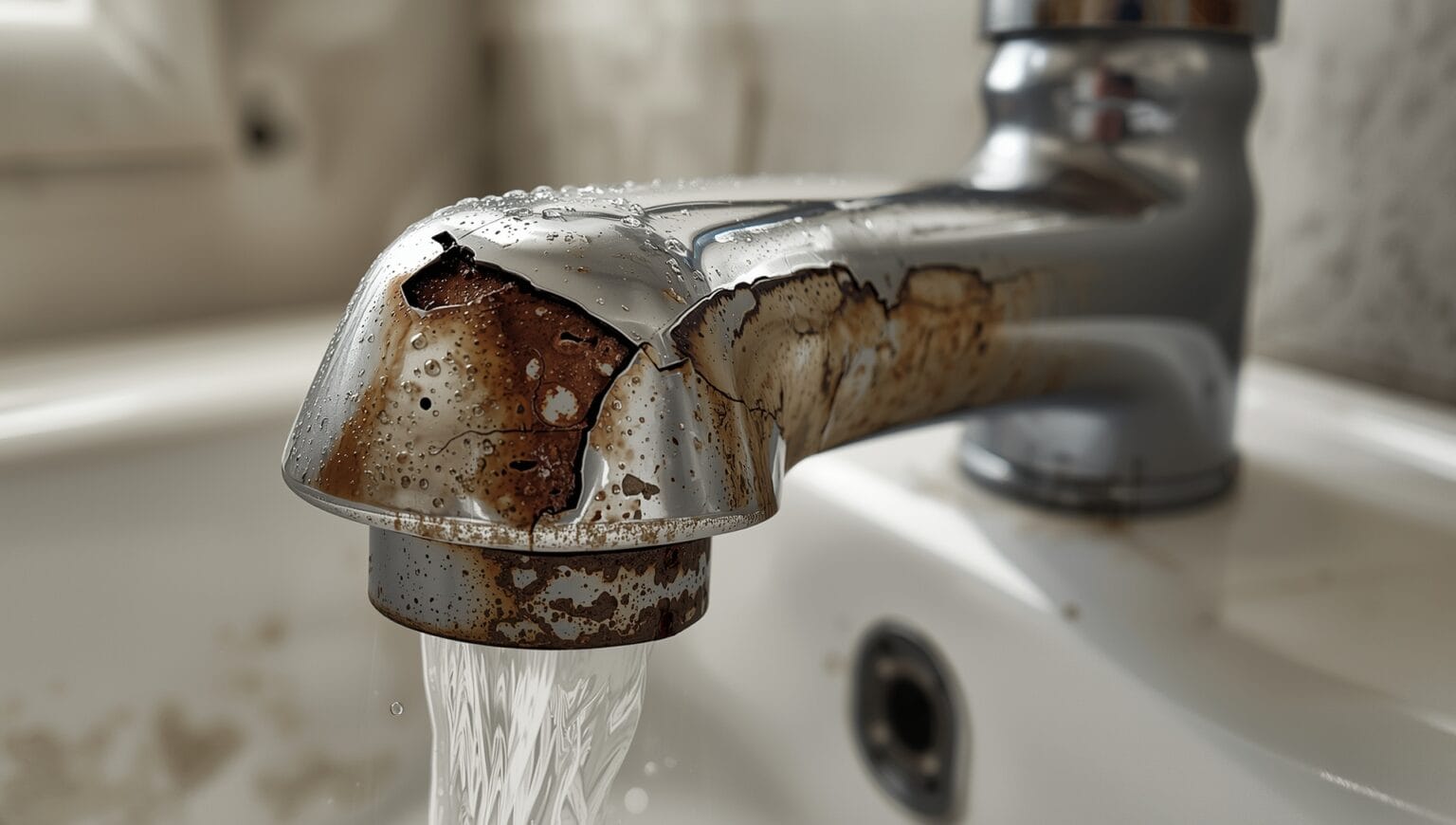1. Introduction
The bathroom is that part of our house where cleanliness and hygiene matter the most. But often people face a big problem rusting and deterioration of the faucet. The rust stains that appear on the faucet not only look bad, but also gradually weaken the entire faucet. This is why it is important for us to understand what causes bathroom faucets to corrode and what steps we can take to prevent it.
2. What Causes Bathroom Faucets to Corrode?
There are many reasons why bathroom faucets rust:
- Hard water minerals (Calcium, Magnesium, Iron): If the water is hard, the minerals present in it gradually start accumulating on the surface of the faucet and react chemically with the metal to produce rust.
- Moisture and humidity: The bathroom is always full of moisture. The constant presence of moisture and oxygen damages the metal of the faucet.
- Poor quality metal and finishing: Faucets made of cheap or lightweight metals tend to rust faster.
- Harsh chemical cleaners: Strong acidic cleaning products can strip away the protective coating of the faucet, leaving the metal exposed and prone to rusting.
- Galvanic corrosion (different metals reaction): When different metals are joined, corrosion can occur due to the slightest current of water and electricity.
- Loss of protective coating: If the chrome or nickel plating is scratched, the metal underneath comes into direct contact with oxygen and water.
3. Signs Your Faucet is Corroding
Some easy signs to identify if your faucet is starting to rust are:
- Appearance of red or brown spots on the surface.
- White chalky layer which is actually calcium deposits.
- Peeling or chipping of the faucet finish.
- Reduced water flow as minerals build up inside.
4. Why Is My Bathroom Faucet Rusting?
People often ask – why is my bathroom faucet rusting? The answer lies in two parts:
- Normal wear and tear: The reaction of water and oxygen affects any metal over time.
- Low-quality material: If the faucet is made of weak metal, then it rusts very quickly.
Actually, the biggest reason for what causes bathroom faucets to corrode is the direct reaction of water and oxygen.
5. How to Stop Faucet Corrosion?
If rust has started in the faucet, it is important to take immediate steps:
- Soft cleaning: Apply a paste of baking soda and vinegar and rub it gently.
- Apply protective wax/sealant: This will form a protective layer on the faucet.
- Keep the faucet dry: Wipe off the water with a cloth after every use.
- Avoid harsh chemicals: Do not use cleaners like chlorine and bleach.
6. How to Prevent Calcium Buildup on Faucets?
- Wipe the faucet with a cloth after every use.
- Wrap a cloth soaked in vinegar around the faucet once a week to dissolve mineral deposits.
- If the water is hard, install a water softener.
- Home remedies are good for removing small stains, but if the problem is severe, get professional cleaning done.
7. What Makes a Faucet Corrosion Resistant?
If you want a faucet to last a long time, pay attention to these things when buying:
- Better material: Stainless steel, solid brass, or zinc alloy.
- Finishing: Durable coatings such as chrome, brushed nickel, matte black.
High-quality faucets may seem expensive at first, but they have a long life and do not require frequent replacement.
8. Extra Tips for Faucet Maintenance
- Wipe the faucet with a mild cleaner every week.
- Do not clean with steel wool or rough objects.
- If the rust has increased, it is better to replace the faucet.
9. Conclusion / Final Thoughts
Finally, rusting of faucets is a common problem, but it can be prevented with a little care and choosing the right material. Now you know what causes bathroom faucets to corrode, what the signs are, and what the ways to prevent it are. Always remember faucets are not just for looks but are an everyday necessity, so invest in good quality and take regular care of it.


